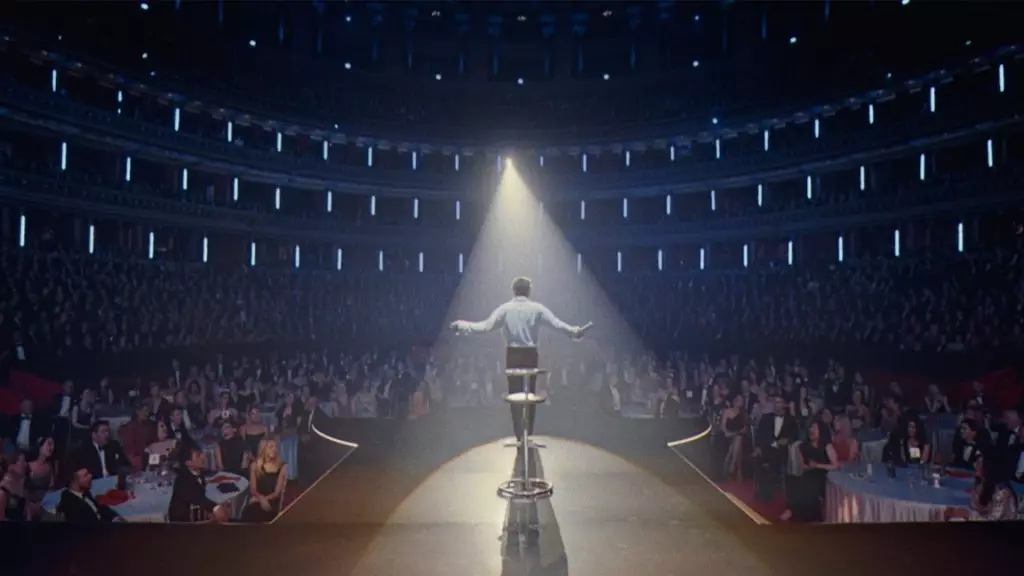The recent passing of Liam Payne has sent shockwaves throughout the music industry, prompting Robbie Williams to express his profound sorrow and introspection. In a candid interview with Deadline, Williams shared the emotional turmoil he faces in the wake of Payne’s tragic death, emphasizing that he is not alone in feeling the weight of their shared experience. As a veteran of the music scene, Williams’ reflections resonate deeply, highlighting the collective grief that accompanies such losses.
Williams articulated his ongoing struggle with depression and sadness, noting, “We’re processing a world-wide shock.” This poignant statement cuts to the core of the human experience, revealing how the loss of a fellow artist can trigger personal reflections on mortality, fame, and mental health. At just 31 years old, Payne’s untimely demise serves as a stark reminder of the fragile nature of life, especially for those in the public eye who grapple with intense scrutiny and pressure.
Robbie Williams did not shy away from addressing the societal implications of celebrity culture. He poignantly remarked that societal attitudes towards fame remain stagnant, questioning, “Nothing seems to change and if it isn’t me, then who? I am the problem if I do nothing.” This powerful assertion highlights a significant issue: the collective responsibility of society to foster a healthier environment for those in the spotlight.
Fame often comes with a perilous price—mental health struggles, constant media scrutiny, and the pressure to maintain a public persona that may not reflect one’s true self. Williams’ candid discussion emphasizes that these challenges go beyond the individual, extending into the realm of social consciousness. His mention of Chappell Roan, a rising artist advocating for better treatment of celebrities, further exemplifies this fight for change within the industry.
What makes Williams’ reflections particularly poignant is his own history as an artist who faced similar hardships. Having burst onto the scene at a young age with Take That, Williams understands the nuances of sudden fame and the trials that accompany it. His mentorship of Payne during their time on The X-Factor reflects a connection rooted in shared experience. Williams recalls moments of camaraderie with Payne and his bandmates, revealing the easy rapport shared between them.
The mentorship Williams provided, however, was not purely about guidance; it was about emotional support. “I use the word mentored in inverted brackets because I hardly did anything,” he quipped, highlighting the organic nature of their interactions. It’s this authenticity that leaves a lasting impact, showing that sometimes, mere presence and understanding can be incredibly powerful in the volatile world of fame.
In the aftermath of Payne’s death, Williams called for an urgent reassessment of how society deals with celebrity culture and mental health issues. “This is not a fame problem; this is a human problem,” he stated emphatically. His words serve as a clarion call urging individuals and communities to foster an understanding of the complexities and vulnerabilities that accompany fame.
The relentless nature of the entertainment industry, compounded by the omnipresence of social media, creates an environment that often neglects the mental health needs of its stars. By recognizing that behind every public figure is a human being facing their own trials, Williams advocates for a shift in cultural narratives surrounding fame.
The heartbreaking loss of Liam Payne has ignited dialogues surrounding the serious implications of celebrity life. As Robbie Williams processes his grief, he also steers the conversation towards meaningful change within the industry. By fostering awareness about mental health and the conditions endured by artists, we can work towards creating a more compassionate and supportive environment.
In honoring Liam Payne’s memory, it is essential to ensure his legacy contributes to a broader movement for understanding and healing, not only for those in the public sphere but for everyone grappling with their own invisibility and struggles.

